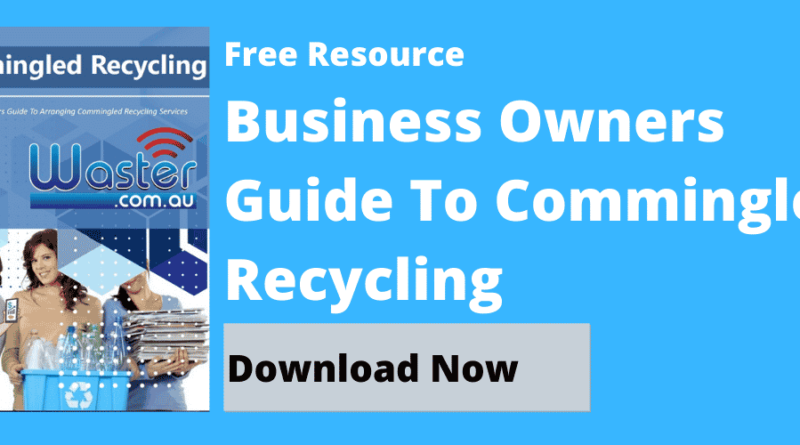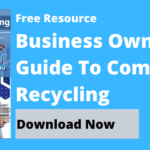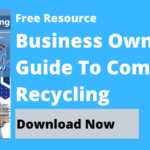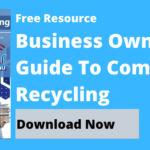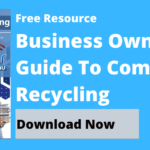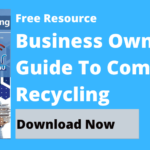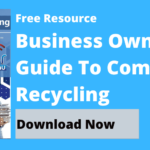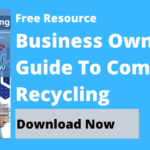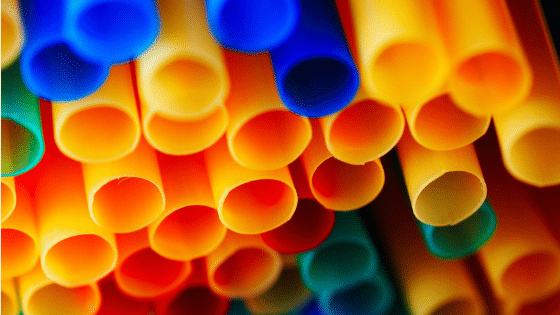WA Coffee Cup Ban: Hey! Did WA Just Ban My Coffee Cup? ♻️ Podcast Ep. 45 Don’t Be A Waster
Energy Disrupter
WA Coffee Cup Ban: Podcast Ep. 45 Don’t Be A Waster ♻️
Listen on Apple Podcasts Listen on Spotify Listen on Google Podcasts Listen on Stitcher Listen on Amazon Music
Transcript: WA Coffee Cup Ban
WA Coffee Cup Ban ♻️: Hello and welcome to another edition of your favourite podcast! At least your favourite recycling podcast, which is Recycle: Don’t be a Waster. Today, we want to cover what is – look, I’ll be honest, it is very good news, which is in WA, in Perth, and The Wider State.
They have banned non-compostable – I was going to say takeaway coffee cups, but that’s actually not accurate. It is non-compostable coffee cups. So I think this is great news. I think one of the most common ie., sites that… that you can see or I’ve seen over the last number of years is people walking down the street, even at the beach, in the supermarket, even drinking from a takeaway coffee cup. Nobody seems to have the time anymore to sit down. You know, have a coffee, have a chat. Everyone’s going 100 Mil an hour, so this could be the push that people need to move into a slower and more sustainable way of living.
Some of the stats I read at University of Melbourne… study… and it estimated that Australia consumes and obviously throws away 1 billion with… a 1 billion coffee cups per annum, which equates to roughly 2.7 million per day, which, let’s be honest, is utterly preposterous. You think about fundamentally every single one of those items could be isn’t actually required. Well, fundamentally, coffee is a luxury. You don’t need to have a cup of coffee. Although, I know a lot of people would disagree and and I would be one of them certainly.
>Download Now: Free PDF Business Owners Guide To Commingled Recycling Bin Services
Act 2: WA Coffee Cup Ban
Today, I’m recording this on a Monday, so I think today is… yeah. I shouldn’t be saying silly things such as that. But I think, you know, 1 billion coffee cups and fundamentally people could sit down, people could bring a replacement cup, you know, a plastic a takeaway cup etc. with them. Or, they could obviously… the compostable cups, so what they are suggesting is that anybody from 1st of March in the state of West Australia, any shop would… could be fined up to $5,000 for supplying a non-compostable coffee cup. Because up to now, very few cups have actually been recycled, and the vast vast majority have ended up in landfill or, let’s be honest, in the waterways, in the oceans and in worse environment affecting plant and sea life.
So this is a good thing. I think there… when we say it’s from 1 of March, it will be enforced and shops are allowed to run down the stocks they may have of if they had purchased previous stocks of cups. They’re allowed to run those down in a sensible manner. And obviously, nothing comes for free, and this sort of thing is expected. Some economist suggest it will add 7 cents of cost to a cafe or, sorry, to the average cup of coffee.
And of course, look, let’s be honest, business is doing… it tough at the moment. I just read a study in the Australian suggesting a tsunami… an impending tsunami of small business collapse due to inflation supply chain issues… the roll on of… of the co-restrictions, the lockdowns etc. And that’s really starting to, you know, impact business. So clearly, increasing cost is not something anybody wants. But if we look at it, I suppose we can argue that the actual cost of the economy of disposing of these cups has been so high that in some way, the net benefit to the economy – like I haven’t got a study in front of me, but the net benefit is probably positive.
Act 3: WA Coffee Cup Ban
We’re probably seeing a positive outcome from an economic perspective, and fundamentally, I think we can move to a more sustainable society where, you know, how can we like… what… you know. Let’s put our thinking hats on what potential ways can we avoid this issue. You know, very simply, slow down. Actually, sit down, order a cup of coffee or tea or whatever you like, your hot beverage and actually drink it in the cafe from an actual cup. You know, maybe talk to somebody, maybe relax for 5 minutes, you know.
I think everyone’s so busy in 2024 that we forget that, you know, the idea of having a cup of tea or coffee was, you know, it was to relax, it was to take a break, it was to chat to someone, chat over a cup of coffee. And I think, to some extent, we’ve forgotten that, you know, we’ve forgotten that we’re always rushing somewhere. We don’t have the time to relax. We’re getting them at drive-throughs, we’re getting them in walking and talking. And, I think, you know, I’ve been mentioning on this podcast for quite a while now – this idea of the slow city slow movement, that I think some of the Italian and Greek cities are proposing that, you know, they’re not trying to compete with New York City or London or whatever else.
They’re saying, you know, we’re a tourist town or whatever it is, and people should move a bit slower and enjoy life. You know, the… a bit of the… in the French system, so I think there’s a lot of positives there. And of course, if you do have to take… do a takeaway cup, you can use… you can bring in your own reusable cup. And look, I think it’s a very… I’ll be honest, I’m not as positive on paper cups as some people are. I know they’re proposed as almost a Panacea… as almost a perfect solution to this environmental issue. Look, I think anyone who’s been to the cinema or been to McDonald’s etc. and has used a paper straw will realize that look. It’s not as convenient. It’s not as easily usable, as plastic. And that is why people preferred to use plastic.
Act 4: WA Coffee Cup Ban
But, you know, I don’t… I think I’ll say from… on my own behalf, don’t shoot the messenger here. I think some people would probably not want to accept that fact – but I think it’s pretty clear that people will… sorry, I’m back – I had a brief Interruption there, so apologies. And, as I was saying, that plastic is more convenient to the end user. Obviously, the repercussions from an environmental and, potentially, a health… There’s obviously increasing awareness that there are Health… repercussions from plastic that are not fully explored or fully understood, but certainly BPA and many other types of microplastic etc.
So I think the more we reduce plastic, clearly, the better. So, the only thing… I don’t mean to be a Negative Nancy here, or point out the negatives of aspect of what is generally a positive development, but paper and cardboard cups… Look, I think, fundamentally, they’re not as usable. They won’t be as probably a pleasant drinking experience to sound a bit like a… maybe a McDonald’s rep here, but I think that, you know, I think… I do think that the paper and cardboard cups would be less pleasant to use.
And I think it’s an ex… or a good reason for people to actually sit down and drink from a proper cup. I also think that paper and cardboard, through the description in the… what I’ve read in the news reports is that it is compostable… compostable cardboard, you know, at Western [Australia] … and at this podcast, we are very aware that there’s a huge difference in… just because something can be done, that it actually will be done. And of course, just because something can be recycled or, in this instance, can be composted, that it will be composted. Because to actually compost it, it will have to be separated, collected and brought to a facility that can actually produce and ensure the correct environment.
Act 5: WA Coffee Cup Ban
I suppose that will achieve the composting, you know, needed, which is generally a certain temperature for a certain period of time and other certain criteria. I was watching a video of someone who operates worm farms, and they were saying that a lot of compostable cups do… should not go into worm farms because they do not break down and, look, I’m not trying to rain on the parade here, but I do think that paper cups… When I see stuff written as compostable, I often think, you know, there’s always, you know, there could be a certain wrinkle here in how doable this is.
Saying that look, it is a really really good positive step, I think, even throwing cardboard and landfill is better than producing plastic… plastic cups. I think a certain percentage will be recycled. A much higher percentage will be composted. It will massively cut down on microplastics and plastic pollution in the environment. And so, just those benefits more than compensated for the risk or… sorry for the, you know, the fact that it probably will not all end up in recycling facilities. But it’s a step in the right direction.
Act 6: WA Coffee Cup Ban
I still think the best solution is to use, you know, ceramic, porcelain, even glass containers. Slow down. Sit down. Enjoy your coffee! It tastes better, the visual appeal of it is greater and I think… You know, the future is… What’s that old saying… The future is Medieval, I think… we might, in the future… I think we might all move a bit slower, but maybe enjoy life a bit more.
So yeah let’s… Sometimes, maybe reflecting this and think about the benefits. I think it’s also, you know, that old saying that you might save time by having to take away a coffee cup, but then there’s a huge amount of effort required to fix the problem that you create. So you might save a minute and spend 10 minutes trying to fix the issue, you know, that if you hadn’t created in the first place and just slowed down, things might work out better.
So yeah, I suppose that descended into a little bit of a philosophical approach to coffee drinking, which I suppose, maybe is the most arraying thing, you know, we can think of. Okay, we’ll leave it there today. And remember, Recycle: Don’t be a Waster!


